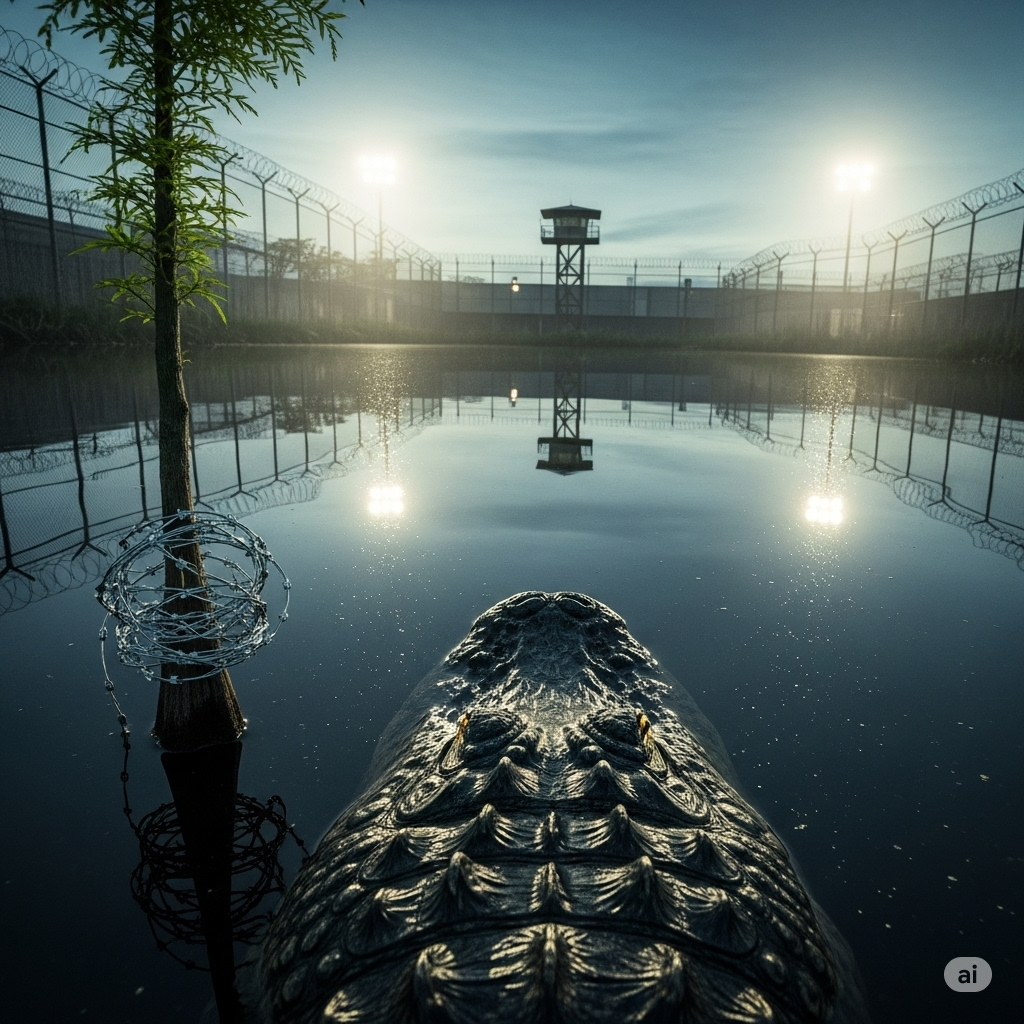Christian Perspective:
From a Christian theological standpoint, “Alligator Alcatraz” raises profound questions about human dignity and compassion. The facility challenges core Christian principles of hospitality to strangers, as exemplified in Hebrews 13:2: “Do not forget to show hospitality to strangers, for by so doing some people have shown hospitality to angels without knowing it.” The deliberate naming and location designed to intimidate contradicts Jesus’s teachings about welcoming the foreign-born and caring for the vulnerable.
Christian social justice traditions would likely view the facility through the lens of liberation theology, seeing it as a manifestation of systemic oppression that fails to recognize the imago Dei (image of God) in every person. The intentional cruelty embedded in the design—using natural dangers as deterrents and marketing the suffering through merchandise—runs counter to Christ’s call to “love your neighbor as yourself.” Many Christian denominations would interpret this as a test of faithfulness, where treatment of immigrants becomes a measure of Christian commitment to justice and mercy.
The wilderness setting, however, might also evoke biblical themes of exile and testing. Some conservative Christian interpretations might frame immigration enforcement as legitimate governmental authority, citing Romans 13’s call to respect governing authorities, while still maintaining that the methods should reflect Christian values of dignity and humane treatment.
Pagan Perspective:
From various pagan spiritual traditions, “Alligator Alcatraz” represents a profound violation of the sacred relationship between humans and the natural world. The Everglades, as traditional Native American tribal lands that the Miccosukee consider sacred Florida tribe fights new ‘Alligator Alcatraz’ migrant facility near Everglades homes – ABC News, embodies the interconnectedness central to earth-based spiritualities. Using this ecosystem as a prison perverts the natural order and dishonors the land’s spiritual significance.
In many pagan traditions, alligators symbolize primal power, protection of ancient wisdom, and the guardianship of sacred spaces. The exploitation of these creatures as living barriers represents a fundamental misunderstanding of humanity’s role as stewards rather than dominators of nature. This echoes broader pagan concerns about anthropocentrism and the commodification of natural systems.
Shamanic and indigenous spiritual perspectives would likely view the facility as creating negative spiritual energy that disrupts the natural balance of the ecosystem. The suffering imposed in this sacred space would be seen as generating spiritual pollution that affects not just the immediate area but the broader web of interconnected life. The detention center transforms a place of natural sanctuary into one of human-made suffering, inverting the proper relationship between human society and the natural world.
The cyclical nature of pagan spirituality would also suggest that such violations of natural and spiritual law create karmic consequences that extend beyond the immediate situation, affecting the spiritual health of the broader community and ecosystem.
Both perspectives, despite their different theological foundations, converge on concerns about human dignity, environmental stewardship, and the moral implications of weaponizing natural systems against vulnerable populations.

